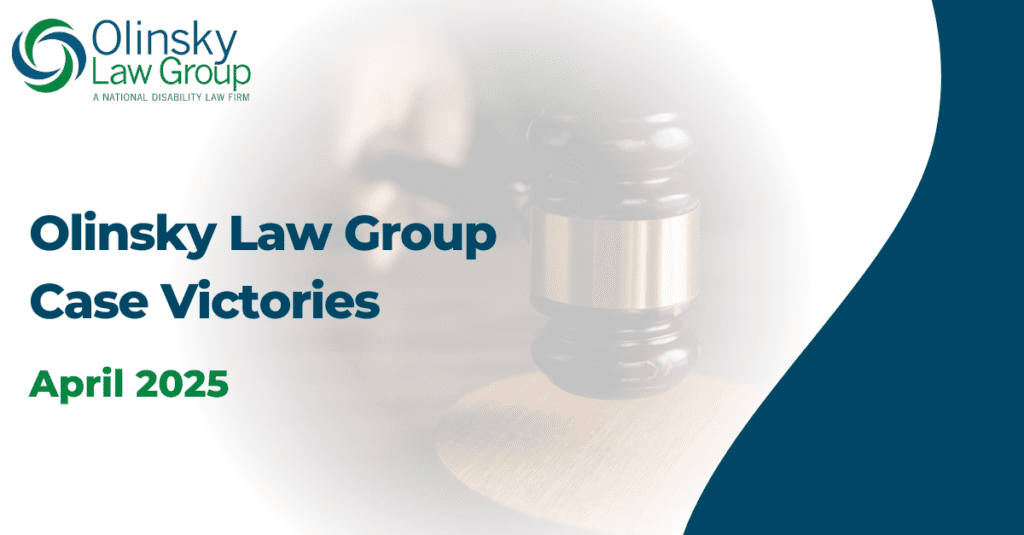Case Victories – April 2025

We’re frequently asked how we win remands on the many cases that get referred to us. We have found that almost all ALJ decisions have errors in them. It’s pointing out those errors to OGC and the Court which procures the remand.
We are presently finding that the ALJs are not following the new regulations on supportability and consistency. If your client’s decision did not sufficiently analyze both the supportability and consistency of all the medical opinions, we want to review that case for federal court.
We’re excited to share some of our recent case victories with you. Here you can read details directly from our attorneys.
Castro v. SSA (1:24-cv-6900-BCM) | Southern District of New York
In this case Plaintiff argued that the ALJ erred by (1) improperly evaluating the severity of his mental impairments; (2) failing to consider the impact of the mental limitations on his ability to perform his highly skilled past relevant work; and (3) improperly evaluating his subjective symptom allegations under SSR 16-3p. The Commissioner reviewed Plaintiff’s brief and stipulated to the need for remand. The Southern District of New York granted the parties’ joint stipulation.
Neuman v. SSA (WAED 2:24-cv-00361-RLP) | Eastern District of Washington
The U.S. Attorney proposed to voluntarily remand the case for another ALJ hearing based on the following arguments:
1. The ALJ found the State agency opinion of Rita Flanagan, Ph.D., to be persuasive, but inconsistently relied on jobs with a reasoning level 2, which are incompatible with the moderate restrictions in ability to carry out detailed instructions which Dr. Flanagan assessed; and
2. The ALJ’s finding—that there are medium jobs existing in significant numbers in the national economy that Plaintiff can perform—is unsupported and erroneous because the medium jobs cited in this decision do not exist in significant numbers in the national economy.
U.S. District Judge Rebecca L. Pennell, granted the parties’ uncontested motion and remanded the case under sentence four of 42 U.S.C. § 405(g), for a new hearing and the issuance of a new decision.
Quick v. SSA (1:23-cv-9235-AMD) | Eastern District of New York
The court ordered remand due to the ALJ’s inadequate evaluation of opinion evidence. First, the ALJ dismissed a disabling portion of an otherwise persuasive opinion for alleged inconsistency with “other opinions,” without addressing supportability or explaining the rationale behind the consistency conclusion. Second, the ALJ declined to even acknowledge what appears to be a medical opinion offered by another treating source, an opinion that is in fact consistent with the first rejected opinion. In light of these errors, remand was deemed necessary.
Rinheart v. SSA (1:24-cv-1141-HYJ-RSK) | Western District of Michigan
Plaintiff raised two arguments in this case: (1) that the ALJ repeated the erroneous medical opinion evaluation that this case was previously remanded to cure; and (2) the ALJ failed to produce substantial evidence to support a Step 5 finding that Plaintiff can perform work that exists in significant numbers in the national economy. In response, the Commissioner conceded the need for remand, and the Court granted the joint proposed order accordingly.
 Contact Us: 1-888-WIN-SSDISM
Contact Us: 1-888-WIN-SSDISM  info@windisability.com
info@windisability.com